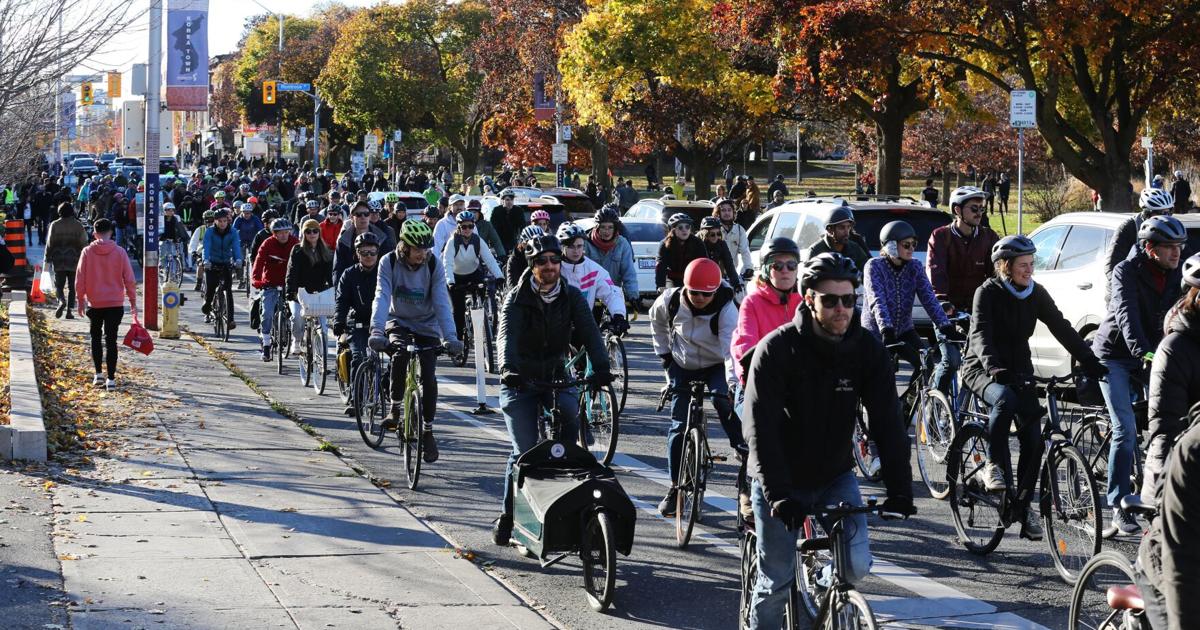Cycle Toronto has initiated a legal challenge under the Canadian Charter of Rights and Freedoms to oppose Bill 212, officially titled the Reducing Gridlock, Saving You Time Act, 2024. The controversial legislation mandates the removal of Toronto’s bike lanes, sparking concerns about public safety.
Joined by individual plaintiffs and represented by Ecojustice and Paliare Roland LLP, Cycle Toronto is also seeking an injunction to prevent the immediate removal of key bike lanes on Bloor Street, University Avenue, and Yonge Street. The lawsuit invokes Section 7 of the Charter, emphasizing that removing bike lanes endangers lives and violates fundamental justice.
Government Claims Versus Reality: A Case of Misinformation
The Ontario government justifies Bill 212 by claiming it addresses traffic congestion and suggests replacing bike lanes with secondary routes. However, leaked government memos and expert analyses contradict this narrative, asserting that bike lanes do not contribute to traffic congestion. Critics argue the lack of proposed secondary routes and the inclusion of indemnity provisions—protecting the province from liability in case of injury or death—highlight the inherent dangers of the bill. This misaligned approach undermines public health, disregarding the clear evidence of the benefits of bike lanes.

Beyond safety concerns, opponents view Bill 212 as an overreach of provincial authority, infringing on municipal autonomy. The legislation ignores data-driven solutions and collaboration with local governments, instead imposing a costly mandate that risks public health and taxpayer funds. Cycle Toronto’s efforts to counter this began with the launch of its “I Love Bike Lanes” campaign, which has seen widespread support, including petitions, rallies, and collaborative advocacy with like-minded organizations.
Milestones in the Campaign Against Bill 212
Since its inception, the campaign against Bill 212 has achieved notable milestones. Highlights include surpassing 25,000 petition signatures and engaging in high-profile events like rallies, community meetings, and a symbolic ghost bike delivery to Queen’s Park. Toronto City Council passed a motion opposing the bill, marking a significant political statement. Advocacy groups have mobilized widespread community support, emphasizing the life-saving benefits of bike lanes and urging the government to reconsider.
Cycle Toronto’s campaign underscores the broader value of bike lanes beyond traffic management. They promote local businesses, environmental sustainability, public health, and personal mobility while reducing traffic-related fatalities. With a long history of advocacy, Cycle Toronto invites supporters to join their fight, emphasizing that collective action is crucial in opposing Bill 212. Contributions, even as small as $5 monthly, can help sustain this movement and ensure Toronto retains its bike-friendly infrastructure.

